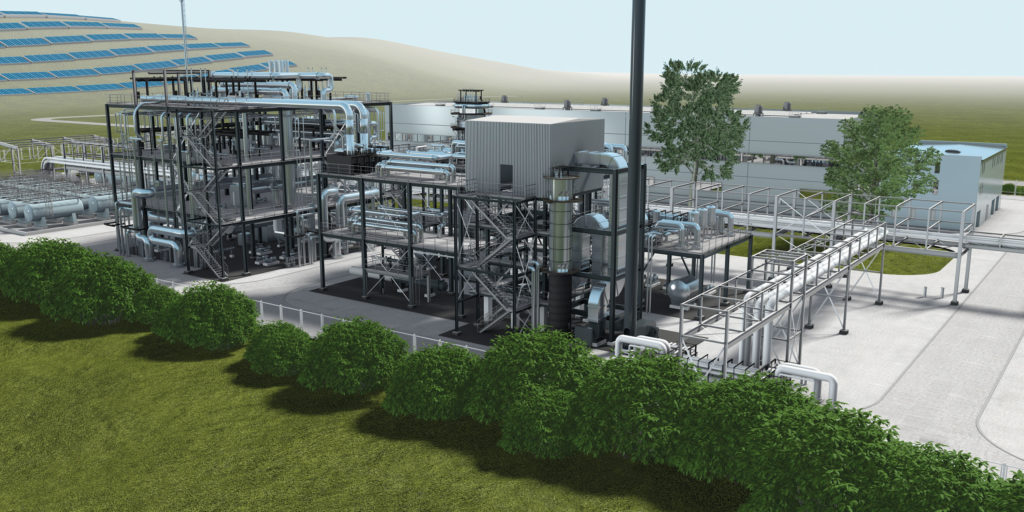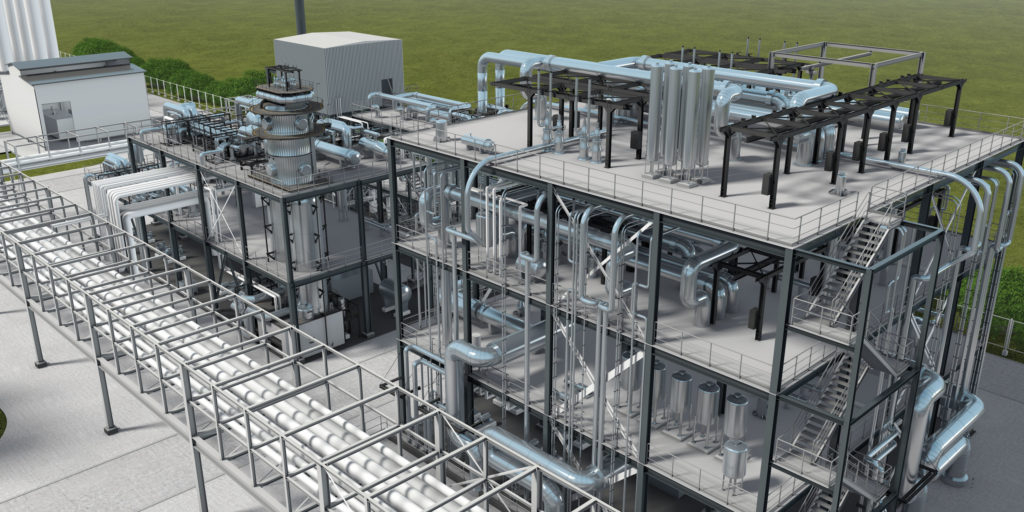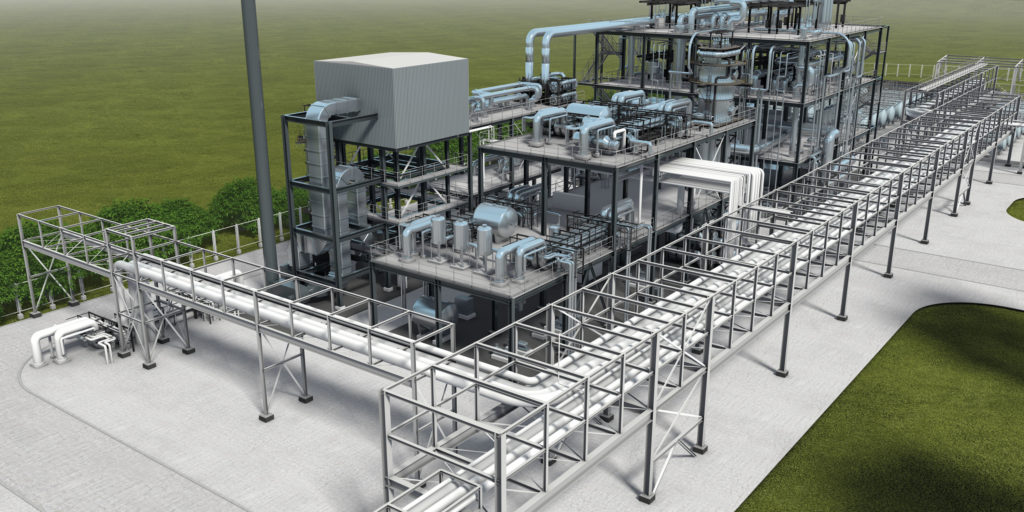Research into the design, production and climate impact of future fuels
The German Aerospace Center (DLR) is working on various production methods for alternative fuels. These include electrolysis and high-temperature processes using concentrated solar radiation to produce hydrogen, together with techniques for further processing into fuels. With TPP, the technology platform for power-to-liquid fuels in Leuna (Saxony-Anhalt), DLR is going one step further: this facility is intended to accelerate the market ramp-up of electricity-based fuels – also known as power-to-liquid (PtL) or e-fuels. Electricity-based fuels are currently thought to be indispensable for decarbonising medium and long-haul flights.
The TPP technology platform will be launched with a production capacity of 2500 tonnes of fuel per year – the first time that a production plant of this size has been trialled. The plant is designed in such a way that various production routes, technologies and innovative components can be analysed and compared – a key feature for technology transfer given that not everything that works on a laboratory scale can be successfully industrialised for mass production.
At TPP, DLR researchers will produce fuels, evaluate them comprehensively and optimise their properties for commercial applications in the air, on water and for heavy goods transport. The aim is to optimise the electricity-based fuels not only from an efficiency viewpoint, but above all in terms of climate compatibility. DLR studies have shown that such fuels can reduce the non-carbon-dioxide effects of aviation, which also have an impact on the climate.
The facility, which is funded by the Federal Ministry for Digital and Transport (BMDV), is not limited to DLR research – it can also be used by industrial companies and research institutions from all over Europe. Numerous projects are already being planned, and production is scheduled to begin in 2028.
Link:
German Aerospace Center (DLR)
Institute of Combustion Technology
E-Mail contact-dlr@DLR.de


